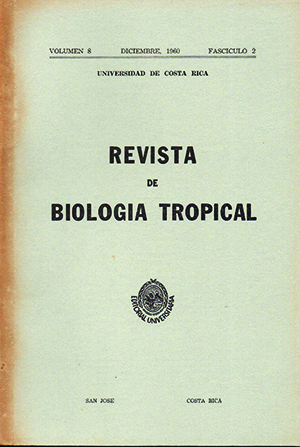Abstract
Two thiol inhibitors, two inhibitors of heavy metal catalysis and an inhibitor of the Kreb's cycle, were tested against the respiration of Endotrypanum schaudinni, Leishmania enriettii, Schizotrypanum cuzi and S. vespertiionis, both in the presence and absence of glucose.
All the species were more or less sensitive to iodoacetate, E. schaudinni being the most sensitive one. This species and L. enriettii were inhibited to a great extent by arsenite, whereas the respiration of the two Schizotrypanutn was considerably more resistant to this substance. This is explained in terms of the more important role that -SH enzymes play in the case of the first two species. Furthermore, a good correlation between motility and degree of inhibition by the thiol inhibitors was observed.
The flagellates were more sensitive to cyanide than to azide. No arrest in motilit y was observed with L. enriettii, S. vespertilionis and S. cruzi in the case of cyanide. Some suggestions are made to explain the response of the flagellates to these two inhibitors. It seems likely that cytochrome pigments of some kind are important in the final respiration of the organisms.
The inhibition produced by fluoroacetate is regarded as further indication of the presence of a complete tricarboxylic acid cycle in the flagellates.
The effect of the inhibitors upon the endogenous respiration of the parasites provided some clues as to the nature of this process, which showed some differences among the three genera studied.






